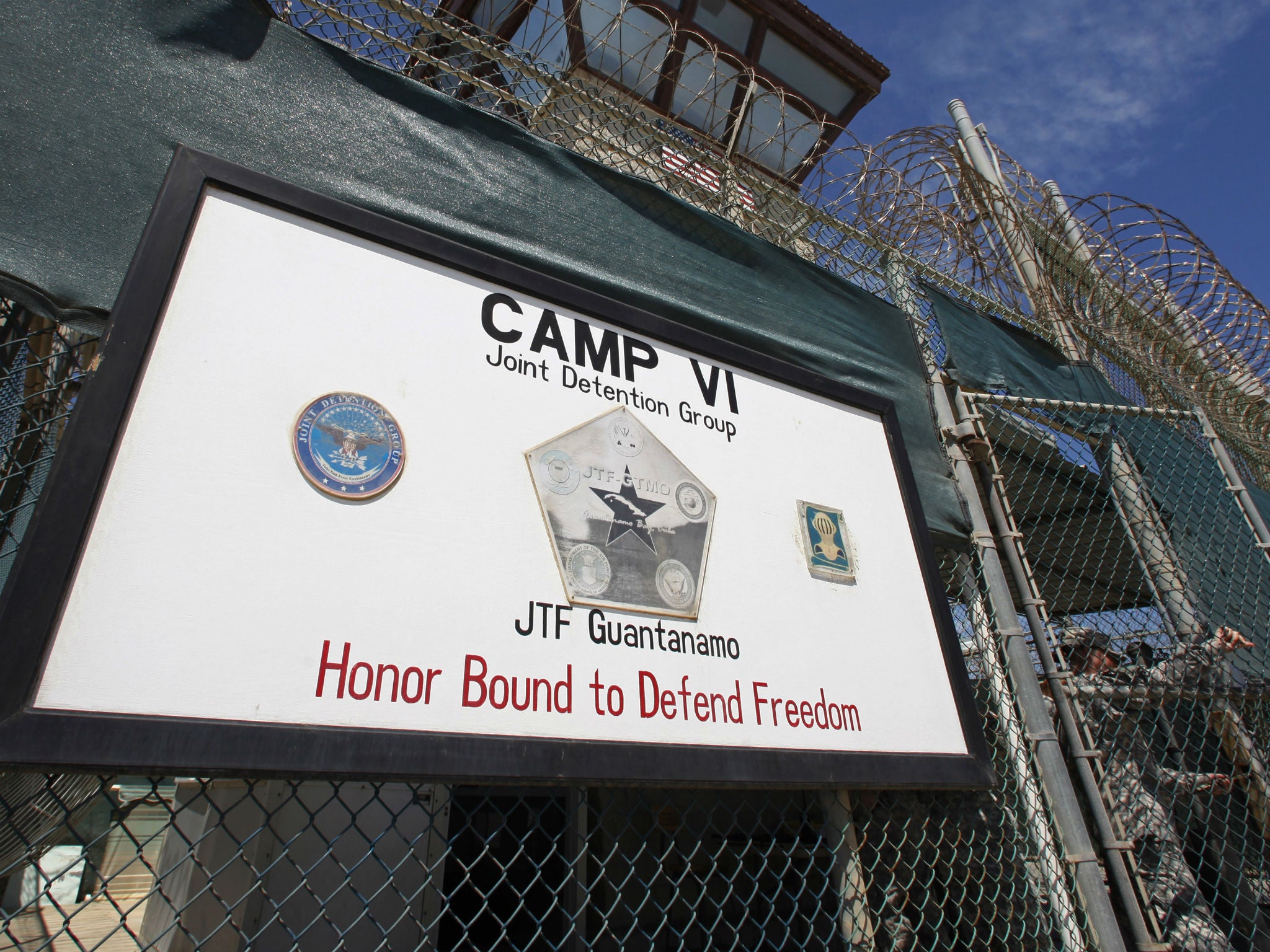Trump says he'll consider sending New York terror suspect to Guantanamo
Comes after President calls for tougher immigration restrictions

Donald Trump has said he would consider sending the suspected assailant in a New York terrorist attack to Guantanamo Bay, saying the venue would be preferable to the “joke” of America's criminal justice system.
The President’s call to handle suspected attacker Sayfullo Saipov outside of the criminal justice system, combined with his vows to pursue more stringent immigration measures and dissolve a popular visa programme, suggested Mr Trump plans to respond forcefully to the worst major terrorist attack in New York City since 9/11 - and in a way that echoes former President George W Bush's fiercely contested response to the 2001 attacks.
Throughout his rise to the Oval Office, Mr Trump regularly invoked the perils of terrorist attacks in justifying fortified immigration policies. He has presented himself as a champion of law and order, advocating tougher criminal penalties as a way to keep Americans safe.
Suspect Sayfullo Saipov allegedly killed eight and injured others in New York City before being shot by police. Police officials said witnesses recounted hearing the attacker shout “Allahu Akbar” as he exited his truck, and multiple outlets have reported police found a note pledging allegiance to Isis.
Asked whether he might send Mr Saipov to the American military prison located in an American naval base at Guantanamo Bay, Cuba, Mr Trump said “I would certainly consider that”.
“Send him to Gitmo”, Mr Trump said.
New York Truck attack
Show all 6In the immediate aftermath of the attack, the President called on Twitter for tougher immigration restrictions, saying he would “step up our already Extreme Vetting Programme” and suggesting he wanted to scrap a visa lottery system. He reiterated that push in a Cabinet meeting, saying he would “ask Congress to immediately initiate work to get rid of this programme”.
In pushing new immigration restrictions like a halt on refugee admissions and bans on visitors from Muslim-majority countries, Mr Trump has argued he is keeping Americans safe from terrorism. Courts have blocked or weakened his proposed travel bans, which critics call cruel and counterproductive to curbing terrorism.
By floating sending Mr Saipov to Guantanamo Bay, a facility that holds suspected terrorists that are termed "enemy combatants", Mr Trump again thrust the military prison into the centre of America's reaction to terrorism. For years the prison has been a divisive symbol of how America has prosecuted its post-9/11 war on terrorism. The facility became deeply controversial during the administration of George W Bush for holding terrorism suspects indefinitely.
But Mr Trump said America's criminal justice system was too slow, offering an extraordinary rebuke of America's legal process.
“We also have to come up with punishment that's far quicker and far greater than the punishment these animals are getting now. They'll go through court for years”, Mr Trump said, adding that “what we have right now is a joke, and it's a laughing stock”.
During the presidential campaign, Mr Trump said he intended to keep Guantanamo Bay open, saying “we're gonna load it up with some bad dudes”.
While Barack Obama vowed to shutter the prison, he failed in the face of resistance from Congress. He did succeed in sharply reducing the number of prisoners held there, from 242 at the start of his presidency to just 41 when he left office.
As Wednesday unfolded, multiple Republicans embraced Mr Trump's call to transfer Mr Saipov outside of the criminal justice system, offering a moment of Republican unity that has been lacking as Mr Trump tangled with members of his own party.
Sen Lindsey Graham, Republican of South Carolina, advocated treating him as an “enemy combatant”, a designation that strips away due process protections like the right to challenge their imprisonment.
Also echoing Mr Trump was Senator John McCain, a Republican hawk who has clashed with Mr Trump over foreign policy but agreed on the proper fate for the assailant.
“Take him to Guantanamo“, Mr McCain told reporters. In a subsequent statement, Mr McCain joined Mr Graham in arguing Mr Saipov should be treated as an enemy combatant.
Subscribe to Independent Premium to bookmark this article
Want to bookmark your favourite articles and stories to read or reference later? Start your Independent Premium subscription today.

Join our commenting forum
Join thought-provoking conversations, follow other Independent readers and see their replies